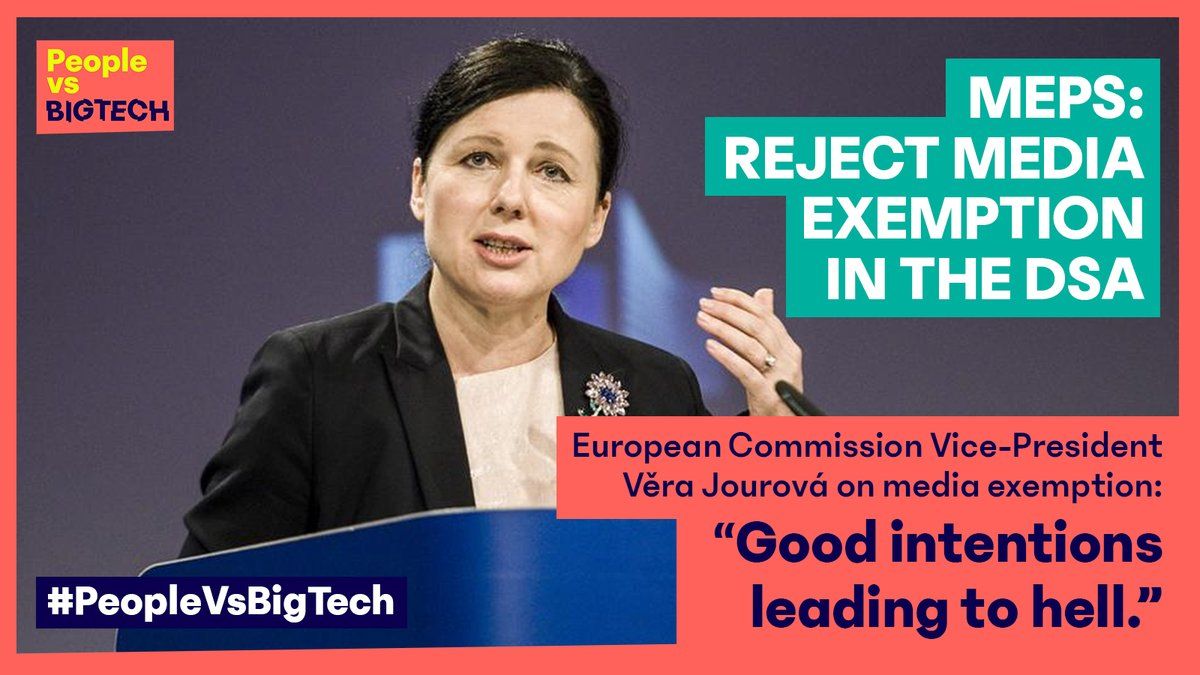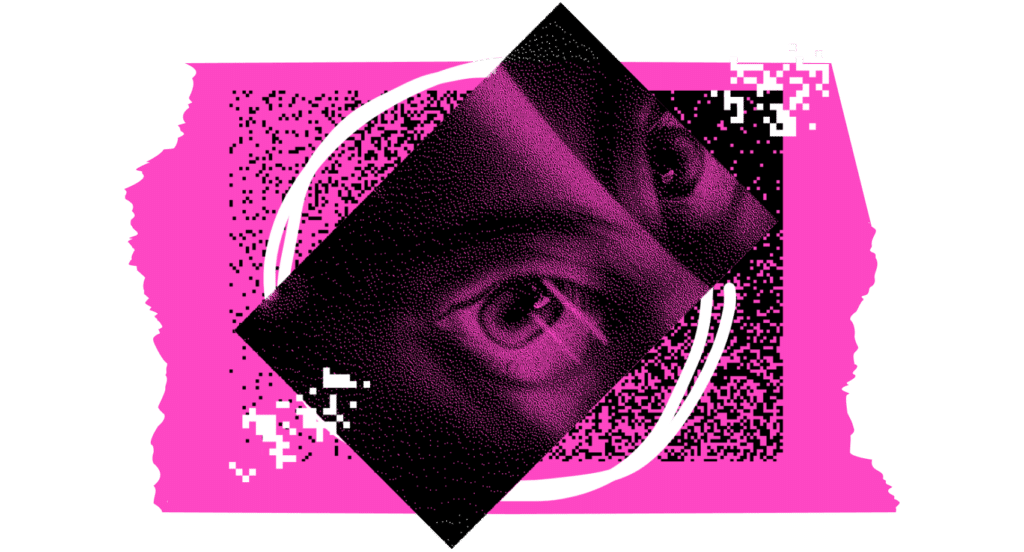MEPs Must Reject “Media Exemption” Loopholes in the DSA
Our briefing explains why proposed “media exemption” amendment will lead to greater online disinformation attacks against EU citizens

A proposed "media exemption" amendment will lead to greater online disinformation attacks against EU citizens.
On Thursday, European Members of Parliament (MEPs) will vote on the Digital Services Act (DSA), a landmark piece of legislation that serves as a golden opportunity for Europe to address algorithmic harms and turn off Big Tech’s manipulation machine. Years in the making, the DSA has the potential to make a significant impact in the critical fight to combat online disinformation by requiring platforms to mitigate the serious risks created by the functionality of their platforms – including the way their algorithms amplify illegal and harmful content that could include propaganda and disinformation attacks. Yet the potential for the DSA to tackle online disinformation could be severely undermined by a proposed “media exemption” amendment, which would effectively mandate the continued algorithmic promotion of media news content even if such content is false. This is particularly problematic when who or what constitutes “media” itself remains vague. If a false story is published by a media outlet, platforms would not be able to apply circuit breakers on their own algorithms to deamplify the disinformation – regardless of how damaging it may be.
It is important to acknowledge that rigorous journalism and fact-checking are vital in the fight against disinformation and must be protected and promoted in a healthy democracy. Platforms should also not be allowed to arbitrarily abuse their power. But creating carve-outs in the DSA is a dangerous solution, prompting European Commission Vice-President Věra Jourová (responsible for disinformation and media freedom) to call it “good intentions leading to hell.” That’s why over 50 fact-checkers, journalists, and experts alike called on MEPs to reject “media exemption” loopholes in the DSA. As Thursday’s vote approaches, the People vs Big Tech network once again affirms that any “media exemptions” must be categorically rejected in order to maintain the efficacy of the DSA. Such loopholes, if passed, would open the floodgates for disinformation because:
- Current media rules do not provide sufficient limitations on the production and publication of false news and information (regulatory frameworks governing press and broadcasters are designed to offer ex-post, not ex-ante, solutions). Given this, a “media exemption” to the DSA would allow the damage from a false story to keep spreading online before a solution was able to be imposed.
- Troubling trends in media ownership have allowed for “a resurgence of press baronism and politicisation.” Under a “media exemption” loophole, potentially compromised media outlets would gain cover for publishing conspiracy theories or other falsehoods designed to advance the personal and political agendas of their owners.
- State-controlled media from countries like Russia are able to produce what amounts to essentially “licensed propaganda,” and self-regulated private media organisations don’t always come with quality assurances. If a “media exemption” loophole was passed, even if the stories were dangerously misleading or blatantly false, they’d continue being shown to millions of people.
In line with these crucial considerations, media scholar Dr. Justin Schlosberg has just released a new briefing outlining why any “media exemption” in the DSA will lead to greater online disinformation attacks against European citizens. A Reader in Journalism and Media at Birkbeck College, University of London, and the author of multiple books about the media, Dr. Schlosberg unpacks the above points and makes plain why it is paramount for MEPs to reject any proposed exemptions. As he notes: “A frictionless system that algorithmically amplifies content cannot have special carve-outs for any type of content.” The briefing also shows how current provisions in the DSA already protect the media from arbitrary decisions by powerful platforms without needing exemptions.
With voting on the DSA this week, now is the time to take a stand and tell MEPs that the DSA can still protect media freedom while rejecting media exemptions.
Download Dr. Schlosberg’s full briefing, and a tweet-ready image calling for MEPs to reject any “media exemption” loophole, below.




